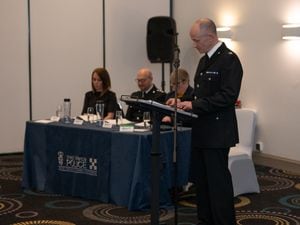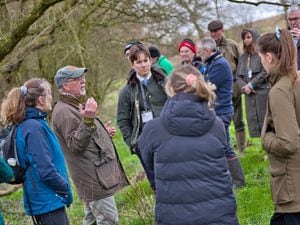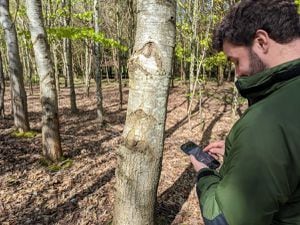'Great strides' being made at Shropshire hospitals
The trust that controls Shropshire's two main hospitals has said major changes have been made since inspectors gave them a "requires improvement" rating.

In January Government watchdog the Care Quality Commission (CQC) said the Royal Shrewsbury Hospital and Telford's Princess Royal had to do better in four out of five key areas.
The CQC rated the trust good for caring for patients, but said it required improvement in providing safe care, effective care, being responsive to patients' needs, and being well-led.
Sarah Bloomfield, director of nursing and quality at the Shrewsbury and Telford Hospital NHS Trust (SaTH), said the trust had made great strides but there was still work to do.
She added: "The CQC report highlighted the care and compassion that our staff show to our patients every single day, and this is something we are very proud of.
"However, the report also included a number of areas where we needed to make improvements and lessons for us to learn, particularly around our equipment and some of our systems.
"Many of these were areas we were already aware of. We have already made great strides in a number of areas.
"One area highlighted in the report was end of life care.
"Last year we appointed an end of life care facilitator, and she has supported our teams in making many improvements in this very important area.
"Work has taken place to improve the environment at our mortuaries, particularly at the Royal Shrewsbury Hospital, and we have also introduced the 'Swan Scheme' throughout the trust, which provides end of life care training for clinical staff, as well as practical measures for patients nearing the end of their lives, and for their families."
Ms Bloomfield said a lot of work had also been done around improving care for dementia patients.
She added: "SaTH is a member of the national Butterfly Scheme, which allows people with memory impairment to receive a specific form of personalised care during their stay in hospital, and we will soon be interviewing for a dementia nurse specialist at the trust.
"Another area that was highlighted was the perception that senior managers were 'disconnected' from staff. We have sought to improve this with the introduction of 'Gemba' Walks, which are designed to seek understanding and get feedback from staff and patients on areas in the trust in 'real time' rather than solely relying on monthly reports.
"They are carried out by groups from different backgrounds, including trust board, senior nurses, senior clinicians, senior managers and patient representatives.
"We have also developed a staff engagement strategy, which seeks to ensure that communication with our staff is a two-way process and includes a number of initiatives designed to improve staff engagement and welfare.
"We know there is still more work to do to get to where we all want to be, but we believe that since the CQC inspection, we have built on the steps which we were, in fact, already working on before that inspection took place."





